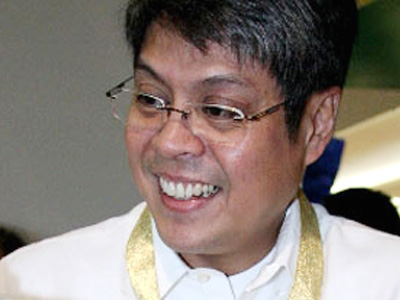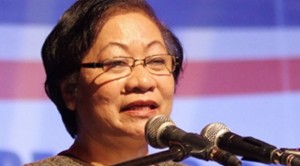Some lawmakers believe the government’s decision to lower its rice-import quota this year may have spurred the smuggling of this staple into the domestic market.
“It is possible there are presrures to bring it in. Somebody lost opportunities from the reduction,” said Sen. Francis Pangilinan in an interview last week amid reports that an unauthorized shipment of Indian rice had made its way into the Subic Freeport.
Citing rising domestic production, the National Food Authority (NFA) had decided to cap its rice imports this year to only 500,000 metric tons or 42 percent lower than the 860,000 metric tons shipped in 2011.
Pangilinan is chairman of the Senate committee on agriculture and food which is conducting the probe of the smuggled rice.
Valenzuela Rep. Magtanggol Gunigundo agreed the reduction in the import quota “could be a contributing factor (to smuggling).”
“Quotas restrict the entry of a regulated commodity and those who fail to get permits can collude and conspire with permit holders to alter, reuse or counterfeit import permits that currently do not have bar codes and other safeguards to prevent illegal use. There seems to be no system or official responsible for tracking and monitoring the usage of the NFA’s import permits at present,” said Gunigundo, a former official of the Bureau of Customs.
NFA Chief Lito Banayo had claimed that the shipment should not be considered as “smuggled” because it was still inside the Freeport’s holding area. The port is a transshipment point.
“Legally, as long as the rice remains inside the port and is not sold to local traders, we cannot consider it smuggled,” Banayo said noting that the shipment’s owner, Amira Food Ltd., was one of the biggest rice traders in India. Banayo, however, maintained that it has not given Metro Eastern Trading Corp. any permit to store the goods in its warehouse at the Freeport.
“The NFA said there is no import permit, so how did it enter? That is the question. What is their intention for bringing it in. They say it’s only for transhipment but Metro Eastern also claims it is for local consumption. There are gaps in their claims,” saidPangilinan.
“At the very minimum, they were intending to bring it in. At worst, it was just a transshipment and then somebody suggested: Why have it transferred when it’s already here? Let’s just do something about it,” Pangilinan said.
In a text message, BOC Chief Rufino Biazon said the government was standing by its decision to seize the “hot” rice from India because it failed to present the necessary import papers within the prescribed period upon arrival last April.
“As far as the Subic BoC is concerned, the rice was not properly documented, therefore it was an illegal importation,” said Biazon.



